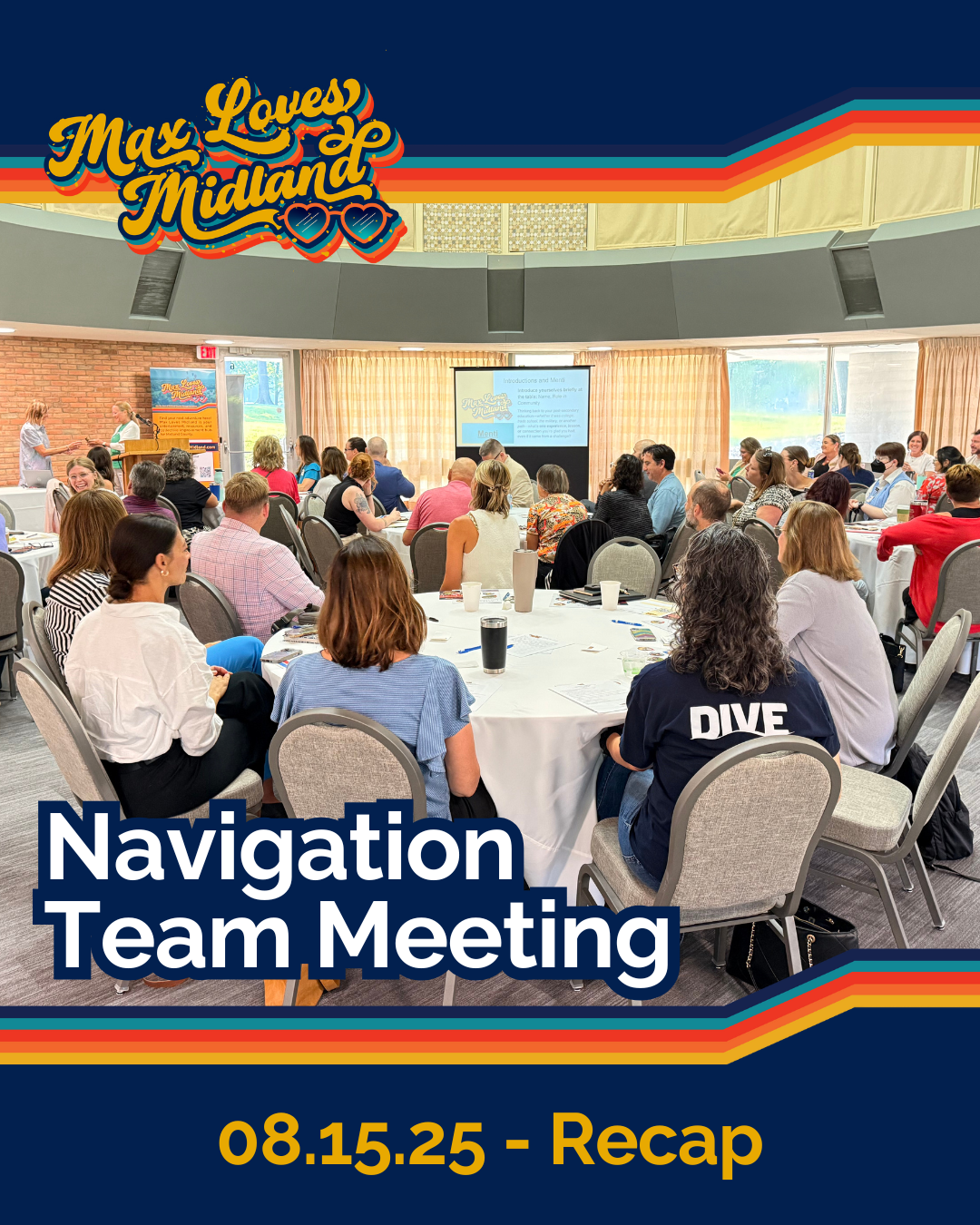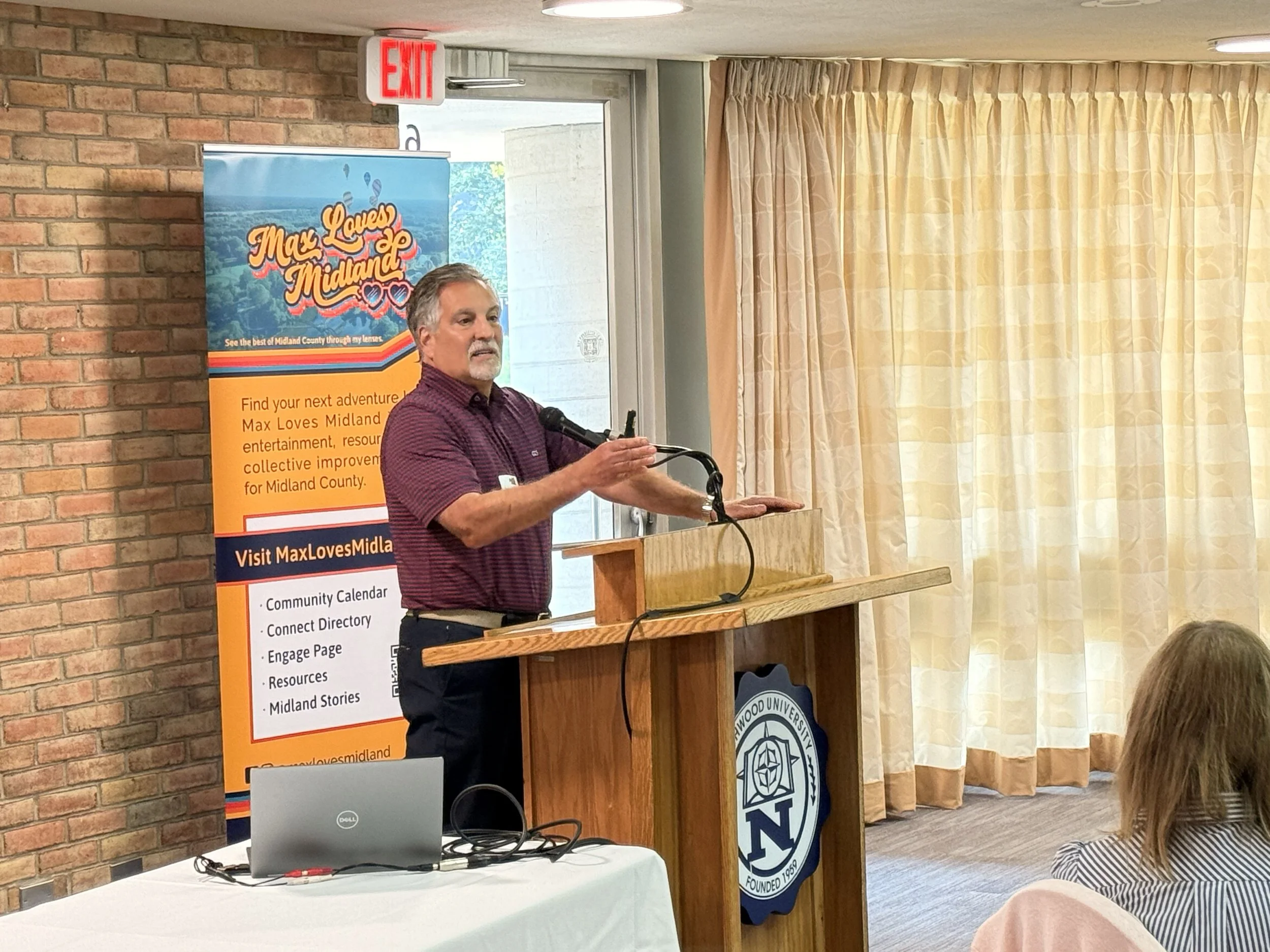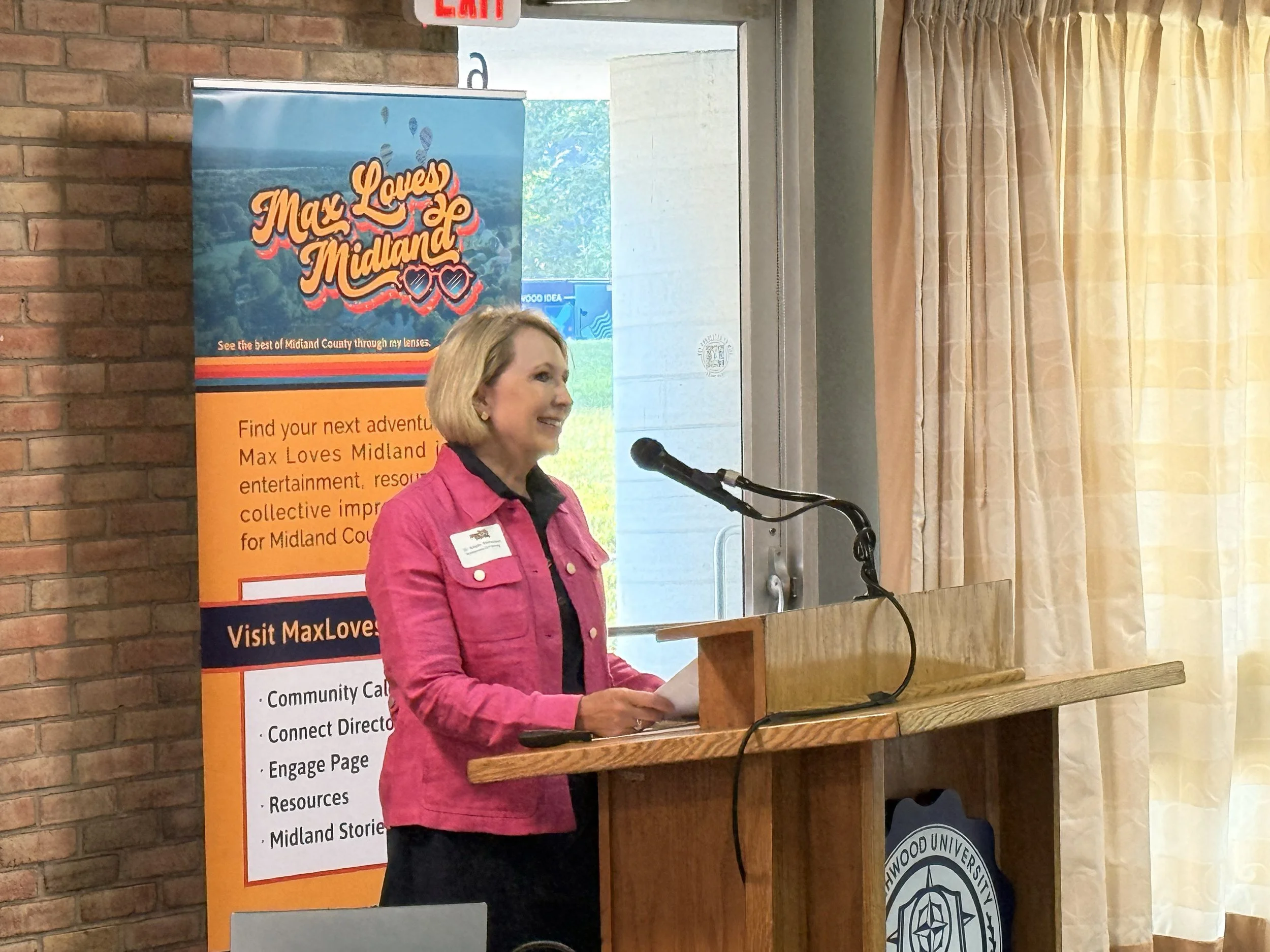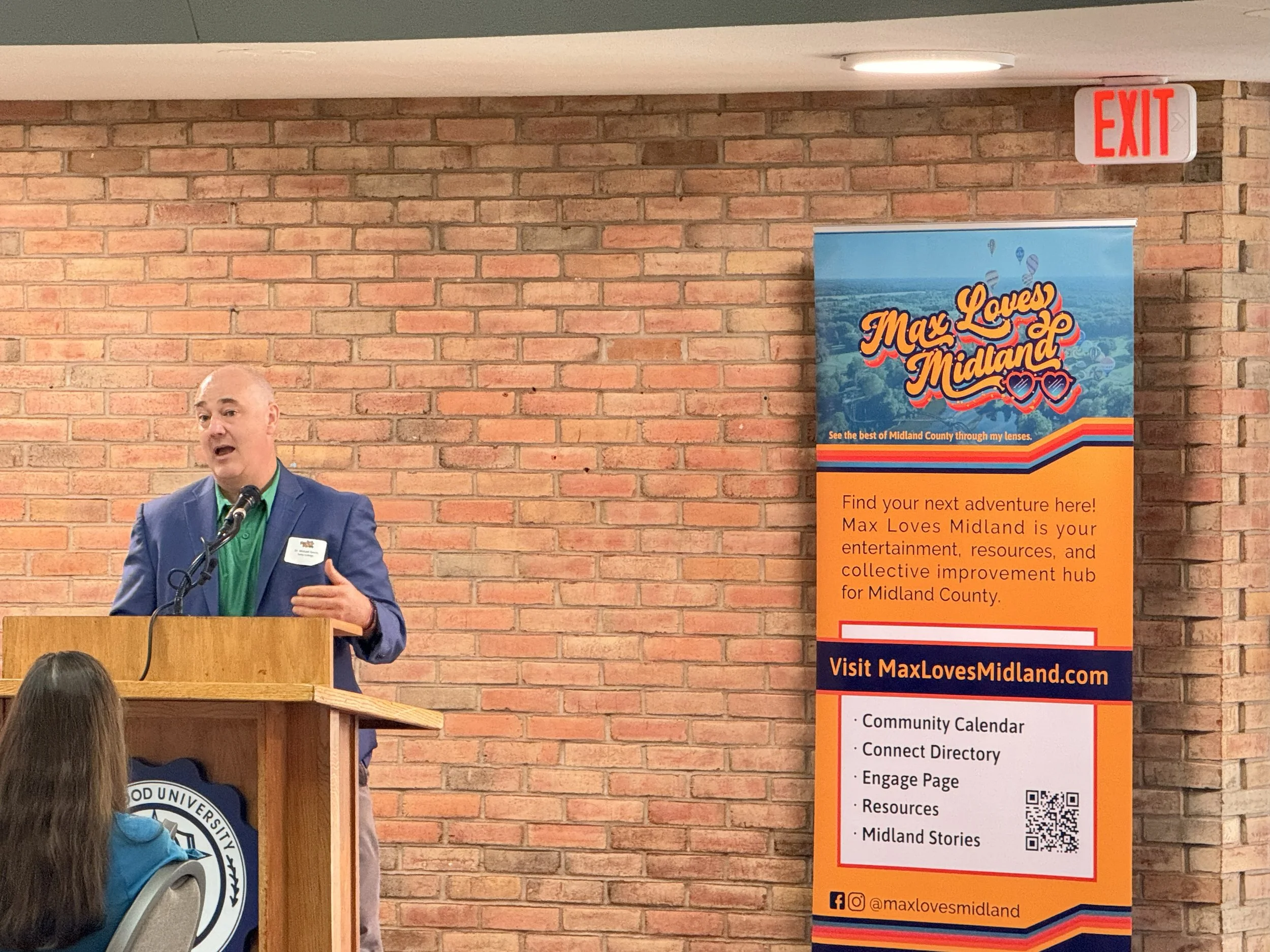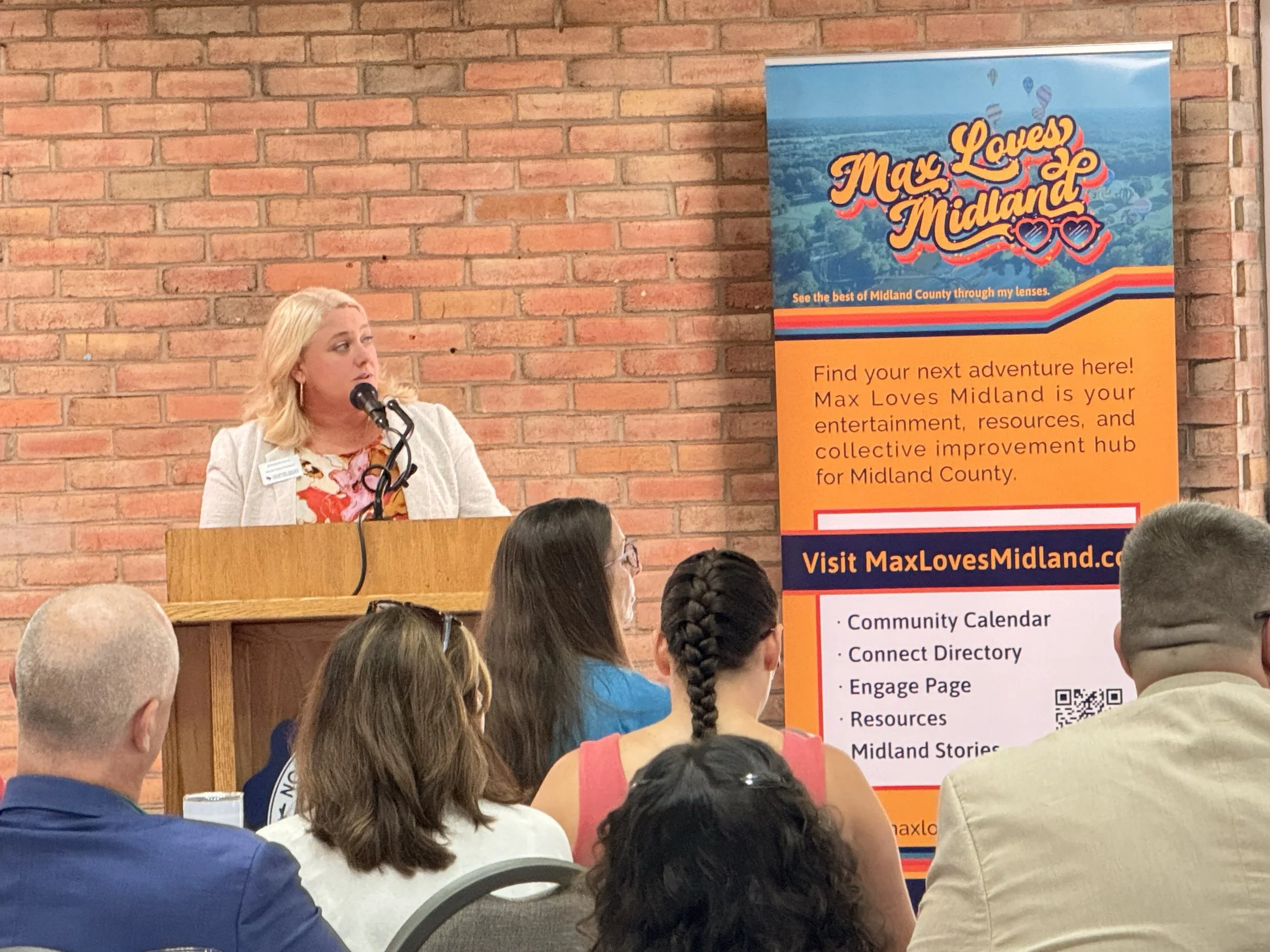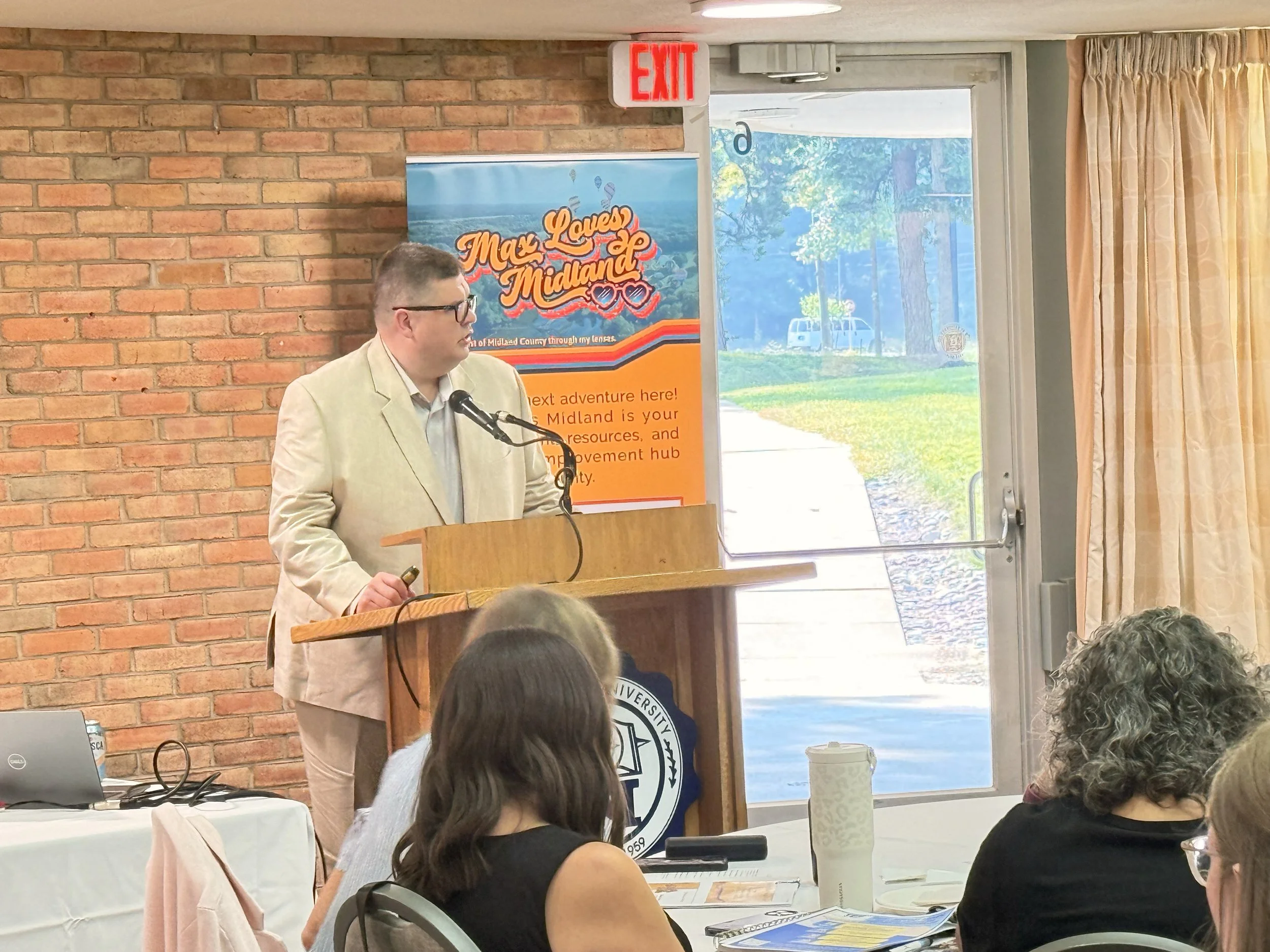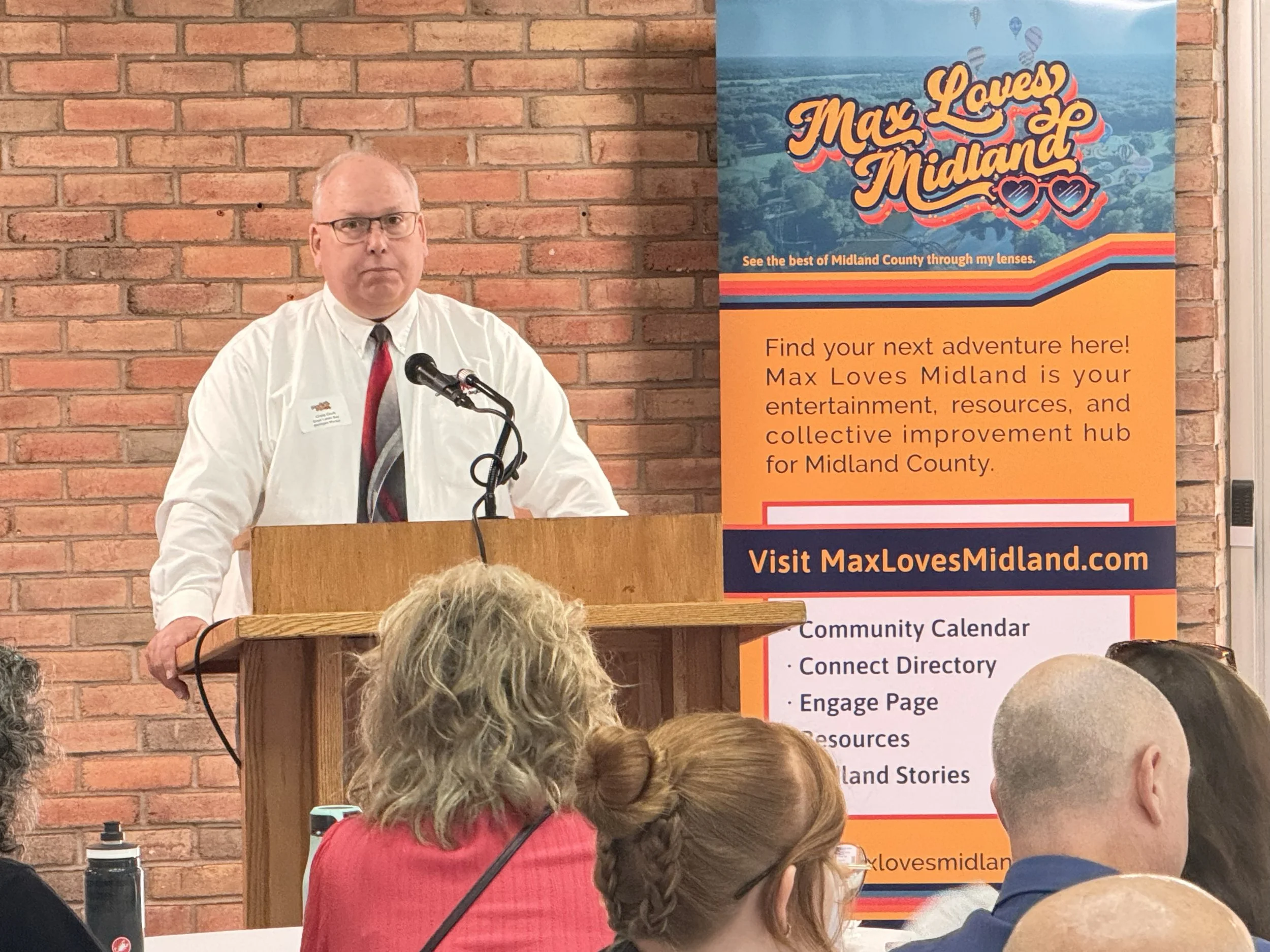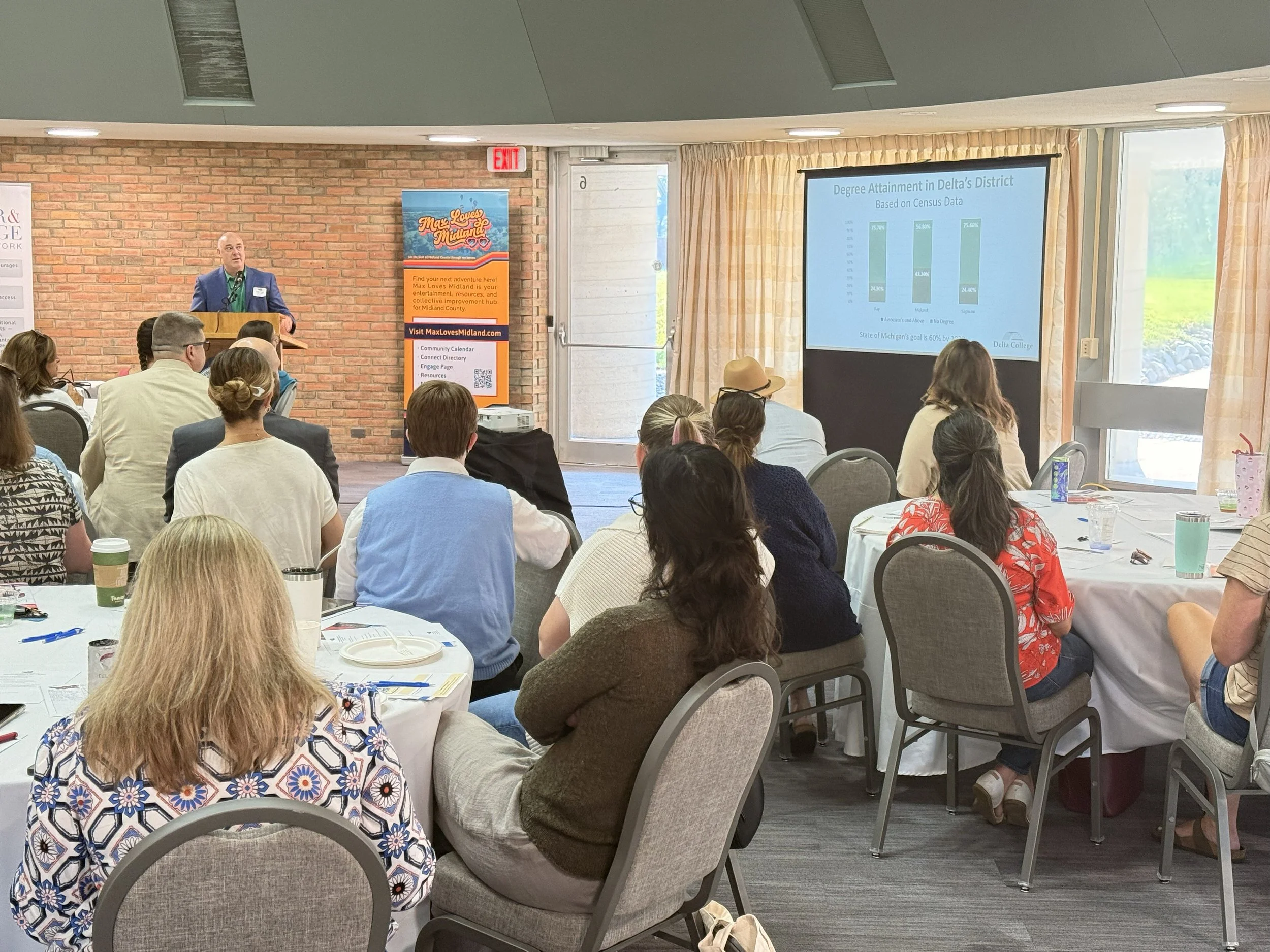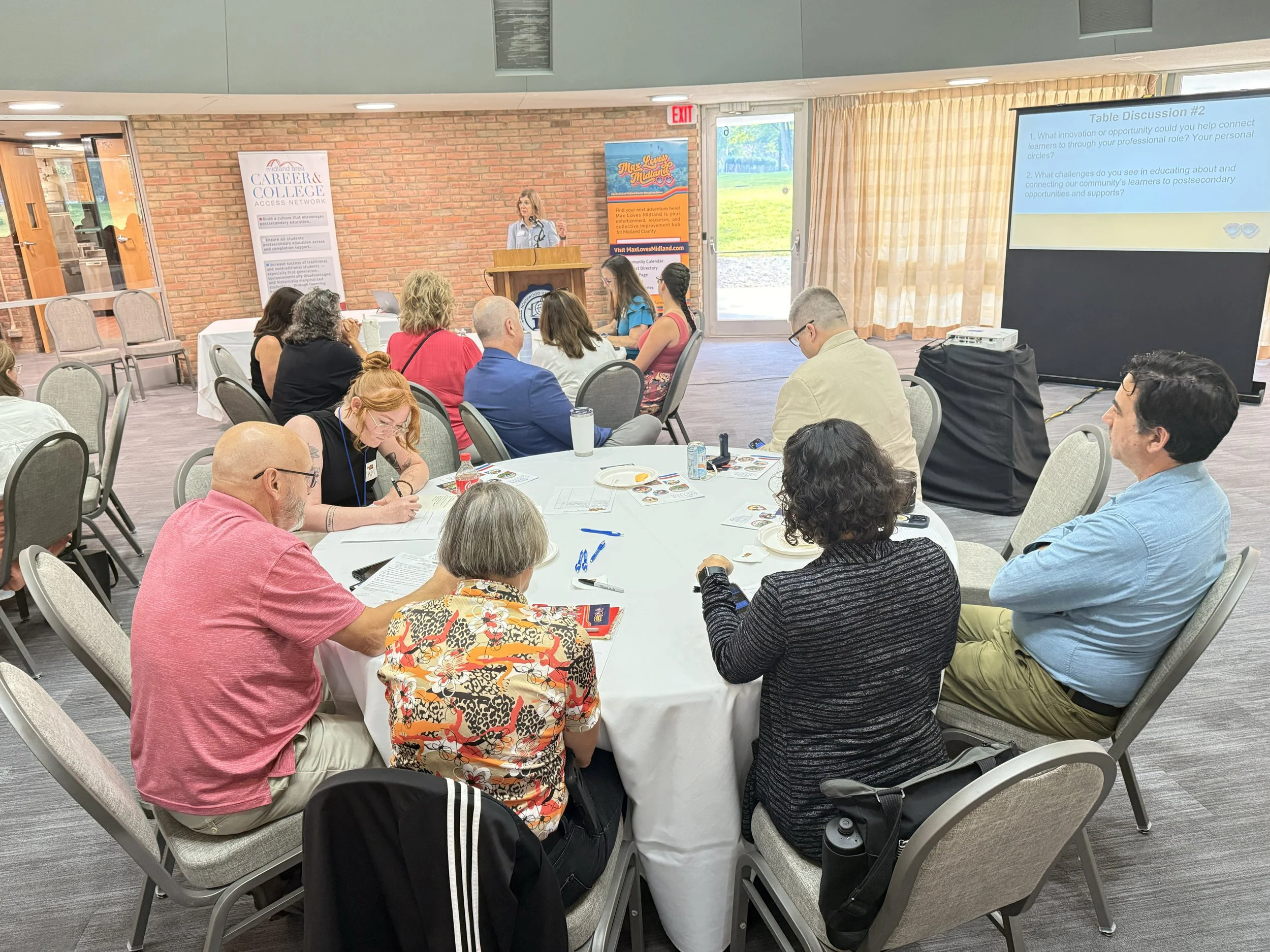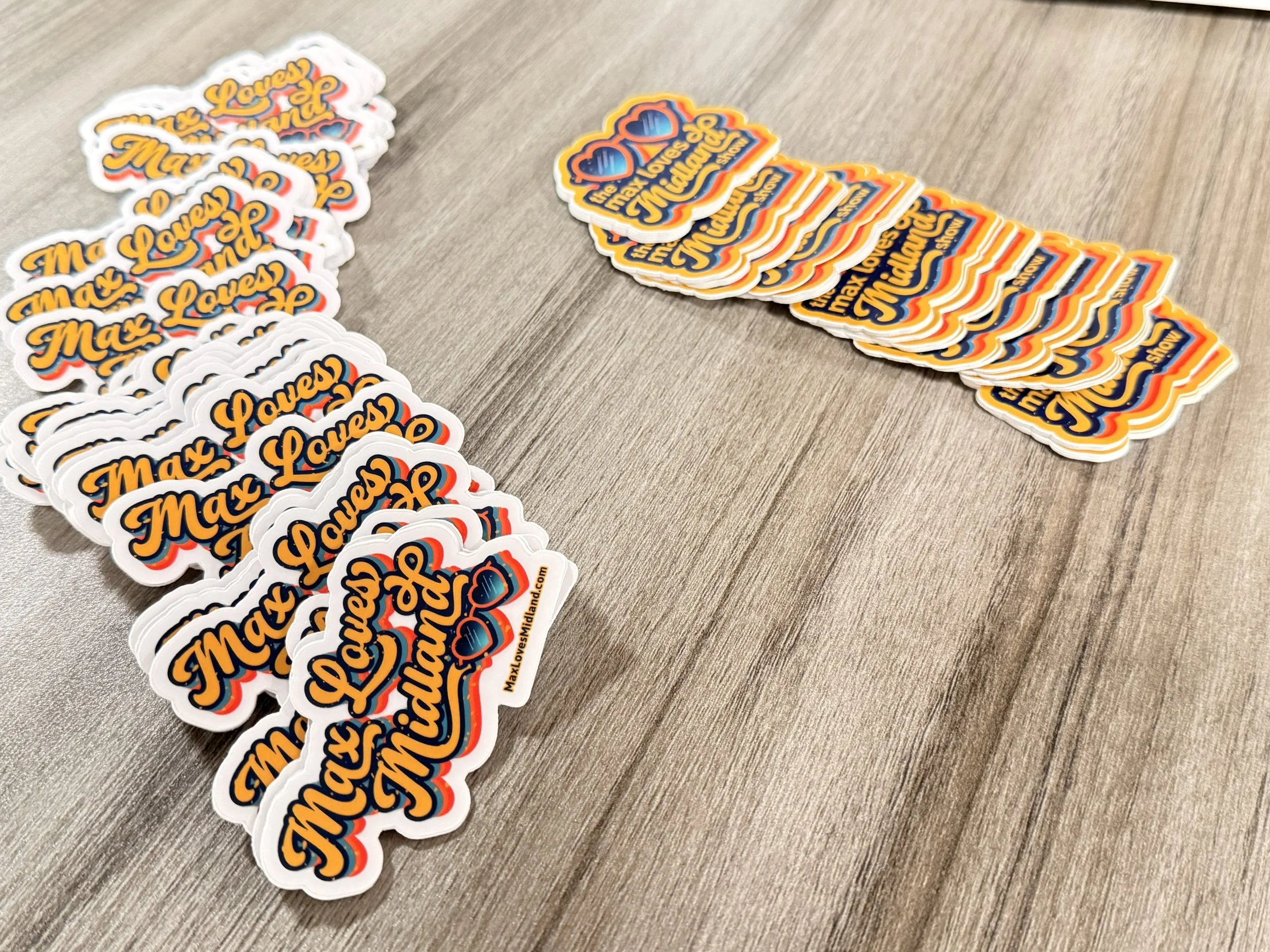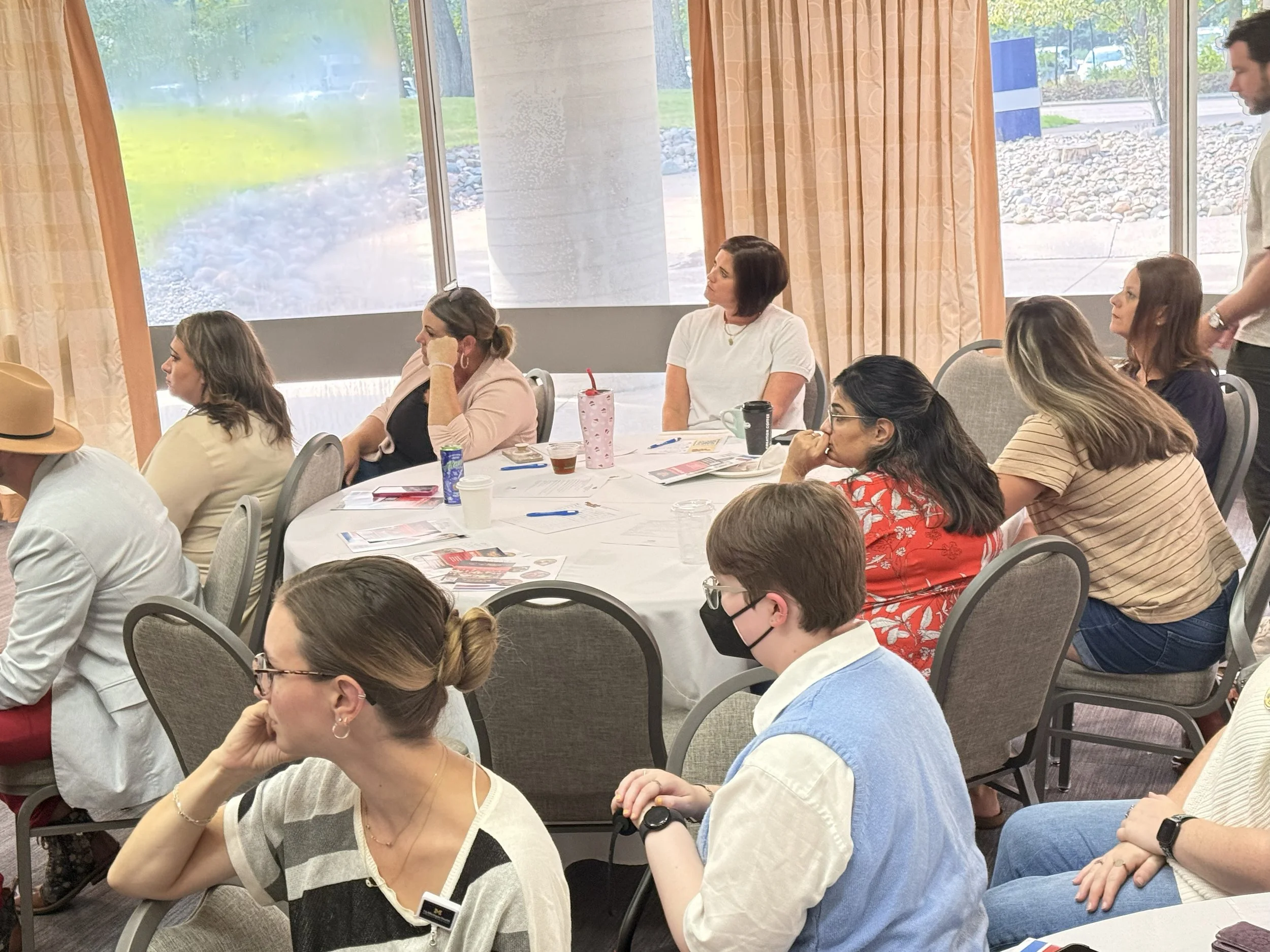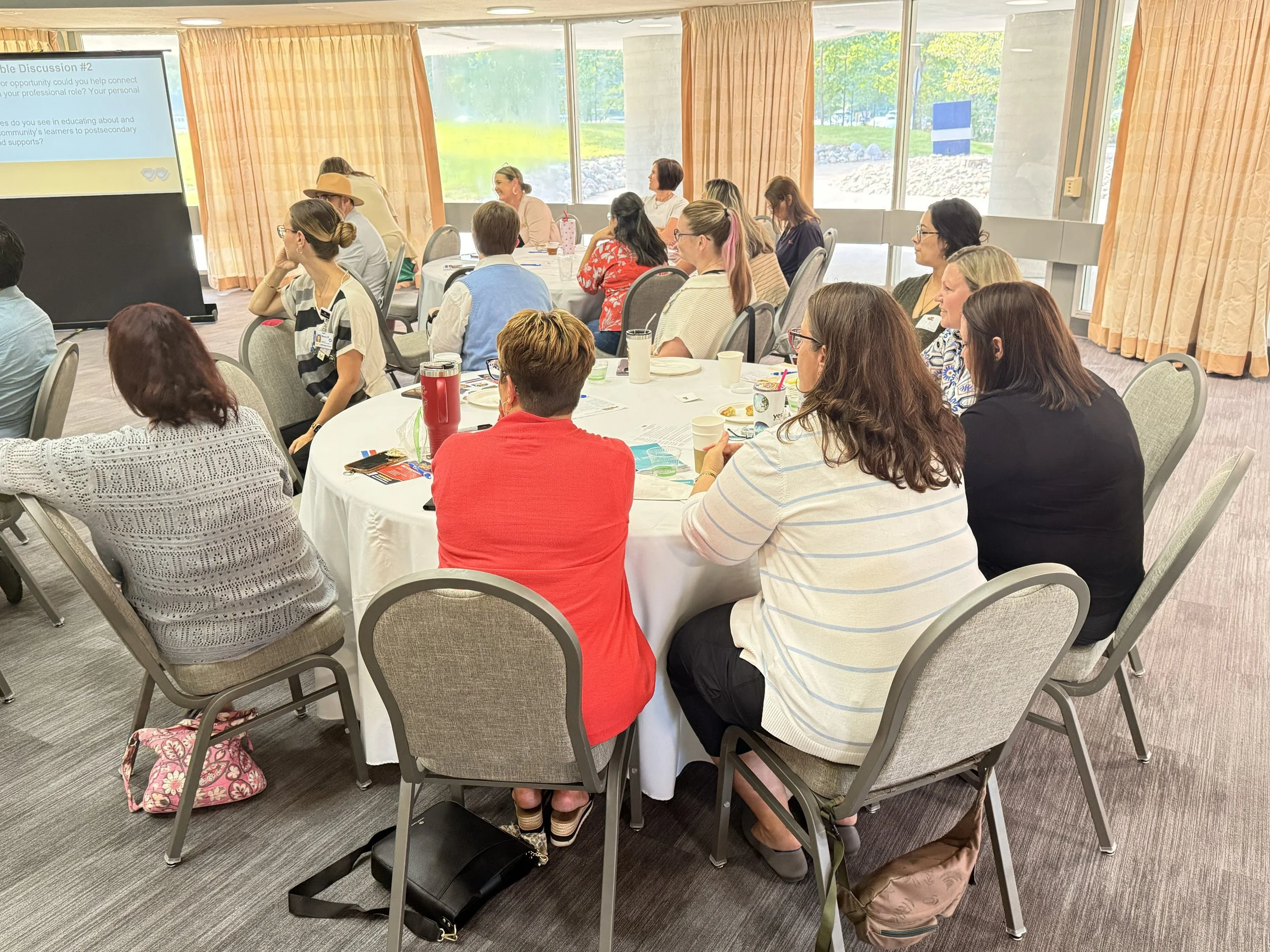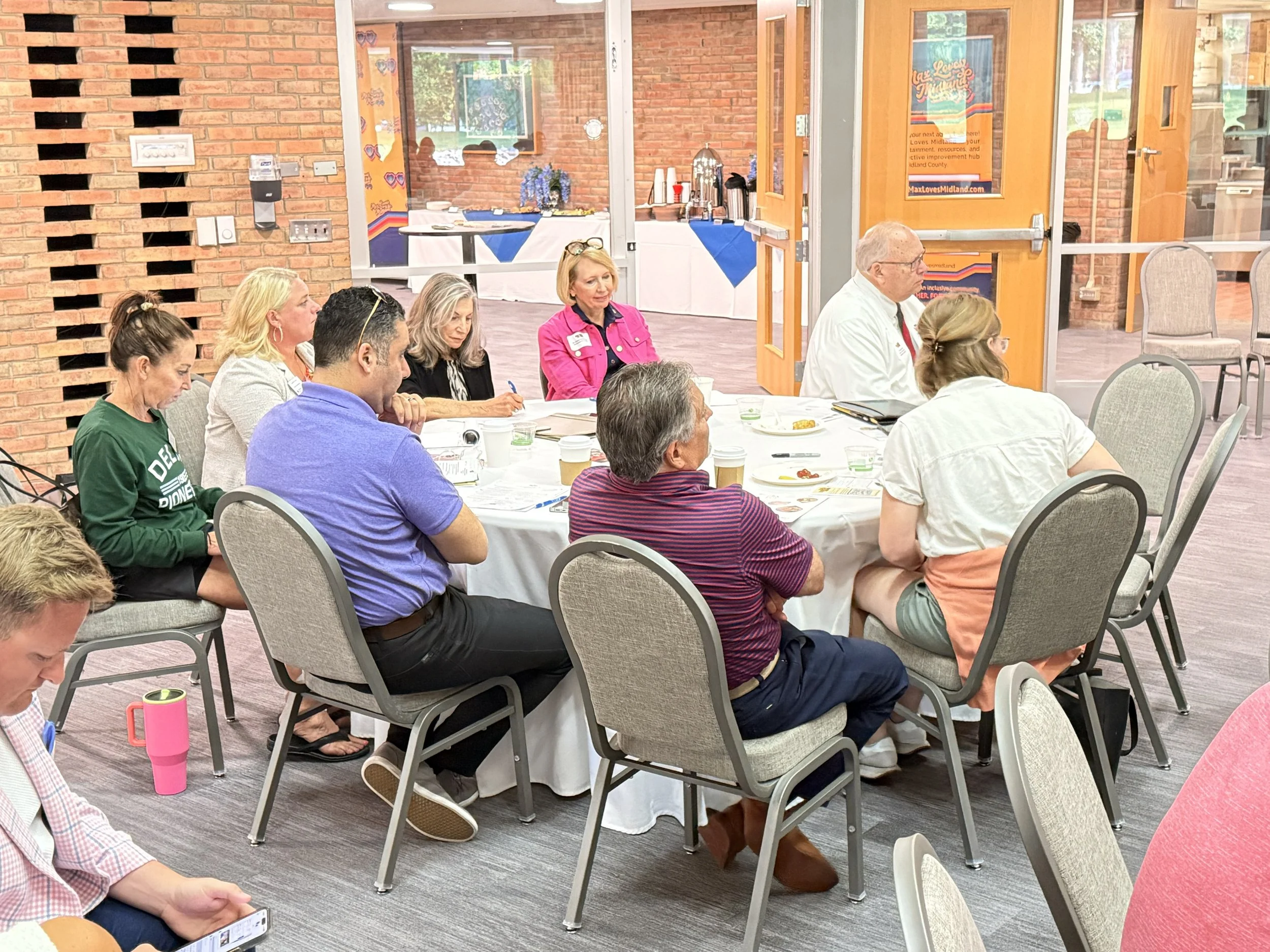Navigation Team Meeting Recap: Postsecondary Education in the Great Lakes Bay Region
The Max Loves Midland Navigation Team gathered on Friday, August 15, 2025, to explore the theme: “Postsecondary Education in the Great Lakes Bay Region.” Together, we looked at how education after high school—whether in college, trade school, apprenticeships, the military, or other pathways—shapes not just individual lives, but our community’s future.
The morning began with a warm welcome from Sharon Mortensen and Kathy Snyder, who reminded us of Midland’s community vision: an inclusive community, Together-Forward-Bold, an exceptional place where everyone thrives. Attendees reflected on their own postsecondary journeys, sharing key lessons, challenges, and connections that made a lasting impact. We also welcomed 15 first-time participants!
Community Success Panel & Max Loves Midland Connections
Lou Mencia shared an update on the Community Success Panel and the role of the Navigation Team. Over the past four years, the Navigation Team has explored a wide range of issues through the lens of collaboration and action. By educating, advocating, and informing, the team helps move our community toward greater alignment and impact.
Lou also highlighted Midland’s involvement in Communities of Excellence, a national framework for improving quality of life through collective action. Our progress shows that when people, organizations, and institutions align around a shared vision, we move farther and faster together.
The Value and Shifts in Postsecondary Education
Dr. Kristin Stehouwer of Northwood University described the wide spectrum of postsecondary learning: from college and technical education to online certificates and workforce coaching. She emphasized the shifting needs of today’s learners, many of whom are navigating anxiety, demanding clear purpose for their education, and engaging with new technologies like AI.
Ryan Fewins-Bliss from the Michigan College Access Network (MCAN) reminded us that postsecondary education remains the most reliable path to economic independence and opportunity. With 69% of Michigan jobs projected to require education beyond high school by 2031, MCAN is working toward the bold goal of 60% statewide attainment by 2030. “Everyone is college material,” Ryan said. “Our role is to ensure the right fit and equitable access.”
Access and Equity in Action
Dr. Michael Gavin of Delta College shared Delta’s work to make degree completion equitable and attainable. By reallocating $800,000 toward retention, student support, and workforce strategies, Delta is addressing barriers such as housing, food, transportation, childcare, and mental health. Enrollment has grown 26% in four years, with notable gains in completion rates and equity across student groups.
Dr. Gavin reminded us that community colleges are “the access engine” for higher education. Partnerships and community awareness can ensure more residents know about the opportunities Delta provides
Innovations in Reducing Barriers
Northwood University is leading innovations such as “Degree in Three,” customizable curriculums, hybrid learning, and embedded certificates so students leave with credentials of value—even if life interrupts their degree.
At Saginaw Valley State University (SVSU), affordability is front and center. Through block tuition, expanded scholarships, and the Cardinal Commitment, two-thirds of SVSU freshmen attended tuition-free last year. SVSU is also modernizing technology systems and expanding short-term credentialing to better meet students where they are.
Nontraditional Pathways & Career Access
Craig Clark from Great Lakes Bay Michigan Works! described how apprenticeships and workforce training connect job seekers with in-demand careers while providing employers with talent solutions. Apprenticeships are expanding into fields like education, healthcare, IT, and even winemaking—offering “earn while you learn” pathways for people across the region.
Dr. Kristin Sovis of the Midland Area Career & College Access Network highlighted local programs that reduce barriers for learners, particularly first-generation and underrepresented students. From having college advisers in every county high school to the new Coleman Postsecondary Hub, Midland Area Career & College Access Network is helping students see that postsecondary opportunities are for everyone.
Why It Matters
The meeting closed with updates from Kevin LaDuke, who shared that more than 4,000 events have now been added to the Max Loves Midland calendar, along with the ongoing success of the Max Loves Midland Show.
As always, the Navigation Team ended by looking ahead: the next meeting will take place on Friday, November 14, 2025, at Northwood University, focusing on Law Enforcement.
This conversation reinforced how critical postsecondary education is, not just for individual learners, but for our shared future. Access, equity, and innovation will shape Midland’s ability to thrive in a changing economy. By working together across institutions, employers, and the community, we can ensure every resident has the opportunity to learn, grow, and succeed.
Do you have a Midland County story you would like to tell that aligns with our vision?

